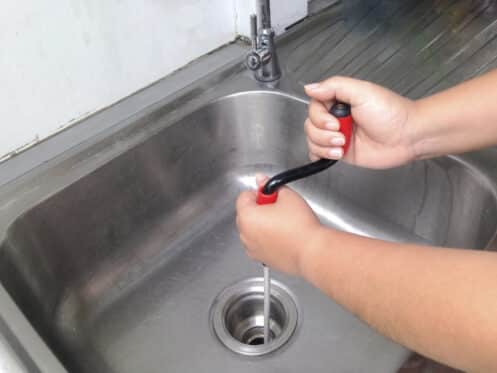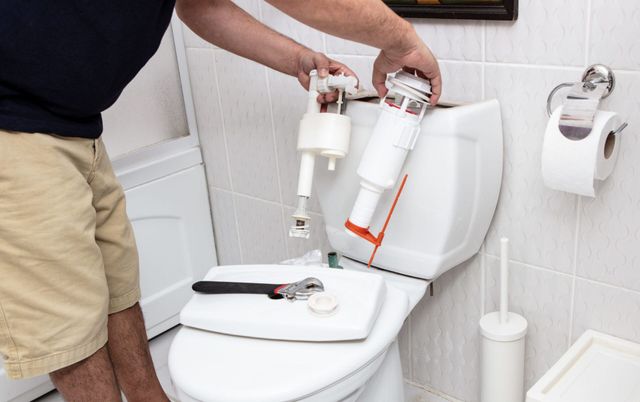New Homeowners: Essential Tips for Your Bathroom Plumbing
New Homeowners: Essential Tips for Your Bathroom Plumbing
Blog Article
Here on the next paragraphs you will find a lot of wonderful expertise with regards to 6 Essential Plumbing Checks for New Homeowners.

For new house owners, understanding and keeping bathroom plumbing can save both time and money by avoiding expensive problems down the line. Right here are some necessary washroom pipes pointers to aid you maintain every little thing running efficiently.
Acquaint Yourself with the Key Shut-Off Shutoff
Recognizing where the major water shut-off shutoff lies in your house is critical. This permits you to swiftly turn off the water system in case of significant leaks or throughout pipes emergencies, preventing extensive water damages.
Consistently Evaluate for Leakages
Little leaks can result in big problems. Regularly examine under sinks, around commodes, and near pipes fixtures for any signs of leakages. Try to find wetness, little drips, or rust. Catching and fixing leakages early can avoid much more significant damages and save water.
Don't Ignore Slow Drains Pipes
If your sink or tub is draining gradually, it's commonly an indication of a clog creating. Resolving this early can prevent a complete obstruction. Utilize a plunger or a plumbing professional's serpent to clear out particles. Avoid making use of chemical drainpipe cleaners as they can harm your pipes over time.
Know What Not to Flush
Commodes are not garbage disposals. Stay clear of purging anything other than bathroom tissue and human waste. Products like wipes, feminine health products, and cotton swabs should be taken care of in the trash to stop blockages and sewer back-ups.
Install Strainers in Drains
Location strainers in your sink and tub drains to capture hair and various other debris prior to they enter your plumbing system. Cleansing the strainers on a regular basis will help protect against buildup and maintain water flowing easily.
Keep Your Water Heater
Guarantee your water heater is readied to an appropriate temperature (commonly around 120 levels Fahrenheit) to prevent scalding and lower energy usage. Flush the container yearly to get rid of sediment accumulation, which can lower the efficiency and life expectancy of your heating system.
Upgrade Your Components
If your home has older components, consider upgrading to extra efficient designs. Modern bathrooms, showerheads, and taps are developed to utilize much less water while providing great stress, which can dramatically reduce your water expense and ecological impact.
Beware with DIY Plumbing Repair Works
While it's appealing to take care of all home repairs on your own, be cautious with pipes. Some concerns could call for professional knowledge, particularly if they entail major water lines or sewer repairs. Hiring a professional can often be a lot more cost-efficient than do it yourself, especially if it prevents further damages.
Plan For Cold Weather
Safeguard your pipelines from cold throughout winter by shielding pipes in unheated locations like basements, attics, and garages. During extreme cold, let cold water drip from faucets served by exposed pipes to help prevent freezing.
Set Up Regular Upkeep
Take into consideration organizing yearly examinations with a qualified plumbing professional. They can detect concerns that you may miss out on, such as covert leaks or wear and tear on pipelines and components. Routine maintenance helps extend the life of your pipes system and can stop emergency situations.
Final thought
Comprehending and preserving your home's bathroom pipes can prevent several typical issues. By adhering to these necessary ideas, you can ensure your washroom stays functional and reliable, saving you money and time over time.
Essential Plumbing Tips for Homeowners: Keep Your Pipes Flowing Smoothly
As a homeowner, understanding the basics of your plumbing system can save you time, money, and a lot of headaches. Plumbing issues can range from minor annoyances like dripping faucets to major problems like burst pipes that cause significant damage. This guide provides essential tips to help you maintain your plumbing system and tackle common issues.
Understanding Your Plumbing System
Supply System: Brings fresh water into your home from a municipal source or a well. Drain-Waste-Vent System: Removes wastewater and vents sewer gases outside. Fixtures and Appliances: Includes sinks, toilets, showers, dishwashers, and washing machines. Basic Maintenance Tips
Regular Inspections: Periodically check for leaks, corrosion, and other signs of wear and tear. Look under sinks, around toilets, and near water heaters. Know Your Main Shut-Off Valve: In case of a major leak, you’ll need to shut off the water quickly. Ensure everyone in your household knows where the main shut-off valve is located. Prevent Frozen Pipes: In cold climates, insulate exposed pipes and let faucets drip during extreme cold to prevent freezing. Use Strainers: Install strainers in sinks and tubs to catch hair, food particles, and other debris that can cause clogs. Common Plumbing Issues and Solutions
Clogged Drains:
Prevention: Avoid pouring grease down the drain and use drain screens to catch debris. DIY Fix: Use a plunger or a plumbing snake to clear minor clogs. For stubborn clogs, a mixture of baking soda and vinegar can sometimes help. Leaky Faucets:
Prevention: Replace washers and seals regularly. DIY Fix: Turn off the water supply, disassemble the faucet, and replace worn parts.

Information Report this page